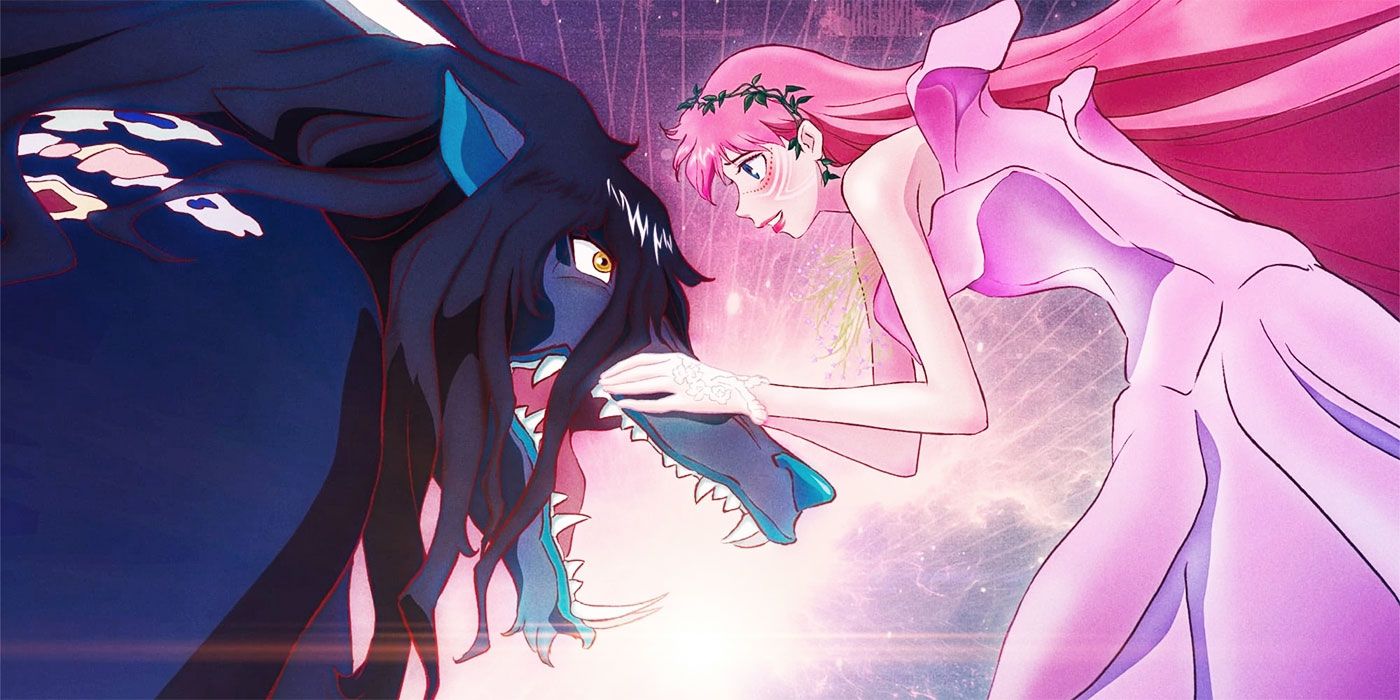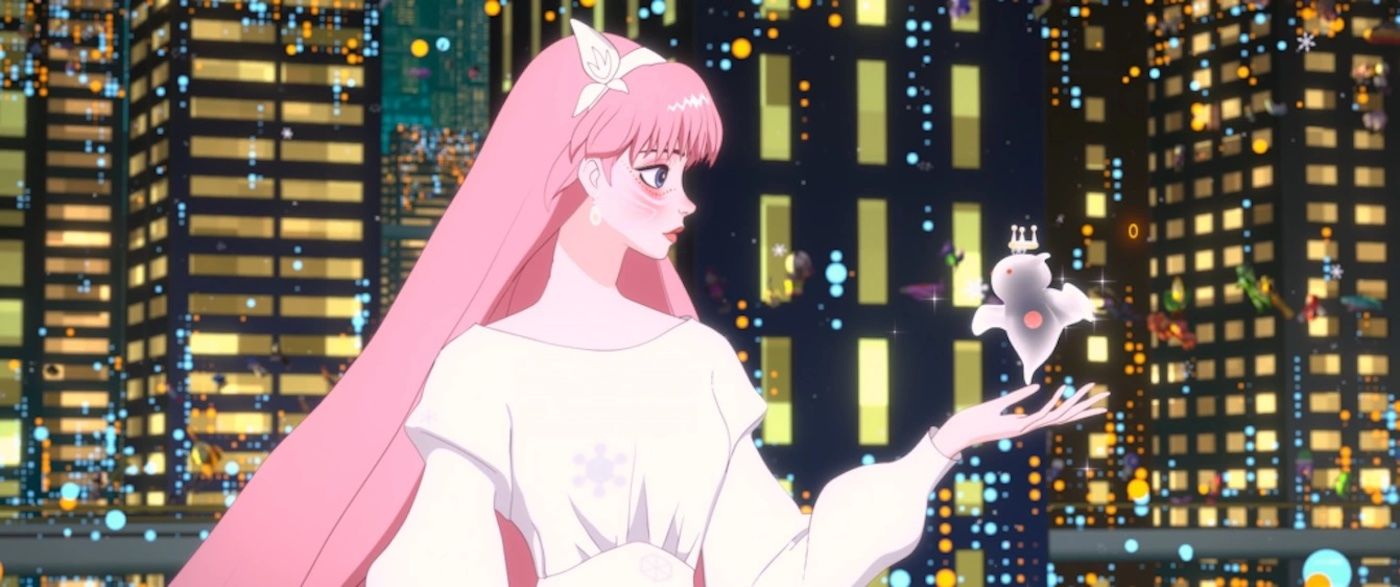When it comes to using the internet and technology as plot devices in movies (and in entertainment) it can be a pretty fine line between being realistic and being so out of touch that it’s laughable.
It’s to be expected, though. Right now, there are multiple living generations that each have their own experience with the internet. Some saw its development and implementation, others grew up with it already in place but less accessible, and still others grew up with the insanely fast innovation and accessibility we know today. With so many viewpoints, it’s no surprise that the internet and technology in general are hot topics. However, it’s also rather common to see these things demonized in media, without any look into the positive effects they can have on the world. Younger generations often find this to be unrealistic, bordering on fearmongering. This is fundamentally why Belle has been received so well by audiences that grew up with the information superhighway at their fingertips.
Belle is centered on a world of virtual reality, called U, that is marketed to people as a way to start over. For the main character, Suzu (Kaho Nakamura), this virtual world is the only place where she can sing once again - and in turn, find her voice again - after the death of her mother. In U, she is no longer a plain high schooler. Instead, she is Bell, a performer that most people find magnetic and beautiful. People flock to hear her songs, and after the incident that introduces her to The Dragon (Takeru Sato), she learns that her songs might even be able to reach the hearts of people other than herself.
The film is excellent at showing both sides of the internet, particularly in the case of Suzu’s online persona. When she first debuted in U, she didn't believe anything would come of it. She sings her song and goes to sleep.
And then she wakes up to millions of followers.
Though, her reception isn’t entirely positive. The film interweaves the negativity directed at Bell throughout its runtime; people call her a show-off, say she lacks talent and that she’s not pretty or special. They talk about their dislike of her while also speculating about her identity. In this sense, Belle is amazingly accurate. How often do we wake up to an artist who suddenly blew up on TikTok or some other platform? Social media creates celebrities all the time, and then suddenly everyone is talking about them, whether it's with praise or belittlement. It often happens to people who are just messing around online, even. Suzu never planned to be famous. She didn’t even really want the amount of attention she received; she just wanted a place to feel seen by someone.
This accuracy is part of what makes Belle relatable. The internet isn’t always the dark and sinister place some people make it out to be. While the film discusses the good and the bad of internet fame, it leans heavily into the reasons Suzu started using U in the first place. The internet is truly a place that is supposed to bring people together, and as Bell, Suzu is able to do that. She’s able to become closer to her true self through the use of her avatar, and eventually, that boosts her confidence and relationships in real life.
It’s also important to note that Belle touches on the way technology and the internet can be used to help people in bad situations. The Dragon is actually a young boy named Kei, who is using U as a way to let out his anger towards his abusive father. Suzu finds herself drawn to him and the mystery surrounding him, going as far as seeking him out in a castle on the outskirts of the virtual realm. She writes a song, especially for him, and eventually, when she has to find him in real life, she’s able to single him out because his little brother, Tomo (HANA), was singing the song only the two of them should know. Suzu’s friend, Hiroka (Lilas Ikuta), is able to figure out their location through the view from the boys’ webcam. Through the time Suzu spent with Kei in U, she figures out how to face the boys’ father by simply not bowing to his yelling. It’s a good example of how the internet can inspire a person's inner detectives; when people see something suspicious on the internet, many of them want to investigate and help. It’s not always a good thing - poor conclusions can be drawn - but sometimes, the care of internet users can be incredibly helpful.
Belle isn’t a film about the horrors or delights of the internet and technology. At its core, it’s about how people find themselves after trauma. This is a major reason why its use of the internet as a setting is so well-done. The use of it by the characters is fairly balanced. It shows the amazing things the internet can provide - attention, comfort, help, entertainment, friendship - while also displaying some of the issues that arise with its use, like negativity, censorship, vulnerability, and overexposure. It’s this balance that makes the use of online presence realistic. It never feels like the film is trying to make a point about the topic, or that it’s preaching about either side of the argument.
Perhaps that’s because it never really focuses on the internet as a whole. It instead focuses on what it does for Suzu, and by extension, what it does for Kei. It’s a way for them to find a voice, heal from trauma, and ask for help. By keeping the internet as both a major part of the plot and a minor message of the story, Belle is able to create something that speaks to the average internet user without having to force a public service announcement. However, beyond that, the film manages to speak to its audience about its true message of healing, finding oneself, and the power of music, without muddling it with its view on the internet despite its prevalence in the story. And that, ultimately, is why its use of the internet is truly seamless.


